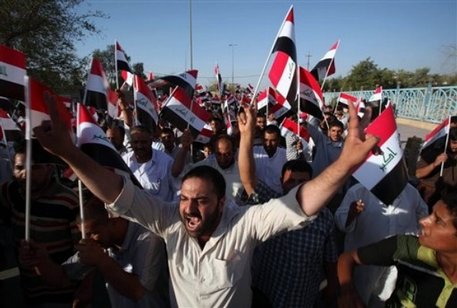
One of the most frequently asked questions in popular media since the 9/11 attacks is some variant of "Why do they hate us?" It's a question I dislike, not just because it leads to trite and overly simplistic answers ("because of our freedom"), but because it ignores the real point of understanding the West's conflict with radical Islam: that it's not about hating us.
Lee Smith, the author of The Strong Horse: Power, Politics, and the Clash of Arab Civilizations, has an interesting passage in his book on this topic: "Maybe the question is not what went wrong with the Islam and the Arabs," he quotes a friend, "but what went right with the West."
To ask whatâ??s wrong with the Arabs is to take the West as the historical norm, and imagine that its progress is a trajectory that all societies must inevitably follow, leading towards freedom, democracy and respect for the inherent dignity of the individual human being. But since we have been handed all of these things for free, it is easy to overlook the sacrifices many generations made in blood along the way. Likewise, to forget how we got here is to trivialize the efforts of others elsewhere who strive for the same ideals, but met with little or no success, like the Arab liberals.
As we seek better understanding of the true nature of the clash of civilizations, Smith advances the argument that the real clash we're seeing is not primarily between Islam and the West, but within Islam. And what's more, in studying history, we find that this clash is hardly new at all - though you probably knew as much - and that focused anger against America is merely the simplest and easiest way to unite warring factions and focus opponents away from their warlike, power-grabbing aims within Arab nation-states. As Smith writes in rejecting the oft-repeated line that 9/11 was born in the dungeons of Egypt:
The assumption behind this theory, and all theories purporting to explain the root causes of Islamic terror - for example, that it is the product of dire economic conditions, or is an expression of legitimate political grievances against the West - is that political violence in the modern Middle East is a deviation from the norm that requires a theory to explain it. The reality is very different. In the Middle East, political violence is not an anomaly. It is the normal state of affairs.
I spoke to Smith last week, and in the context of our discussion, I asked what he expects on the path ahead for the United States as we interact with the Muslim world. He believes that until we acknowledge the realities of conflict's essential role within Arab politics and government, the way forward is just going to be full of more disappointment. His view can hardly be called optimistic, but I think there's a great deal of merit to it. As Americans, we naturally view foreign policy through a U.S.-focused lens, and we're just not used to hearing "It's not about you." Maybe it's time we got used to that idea.
Benjamin Domenech, a former speechwriter for Tommy Thompson and Sen. John Cornyn, is editor of The New Ledger and a research fellow with The Heartland Institute. He writes on defense and security issues for The Compass.
(AP Photo)



